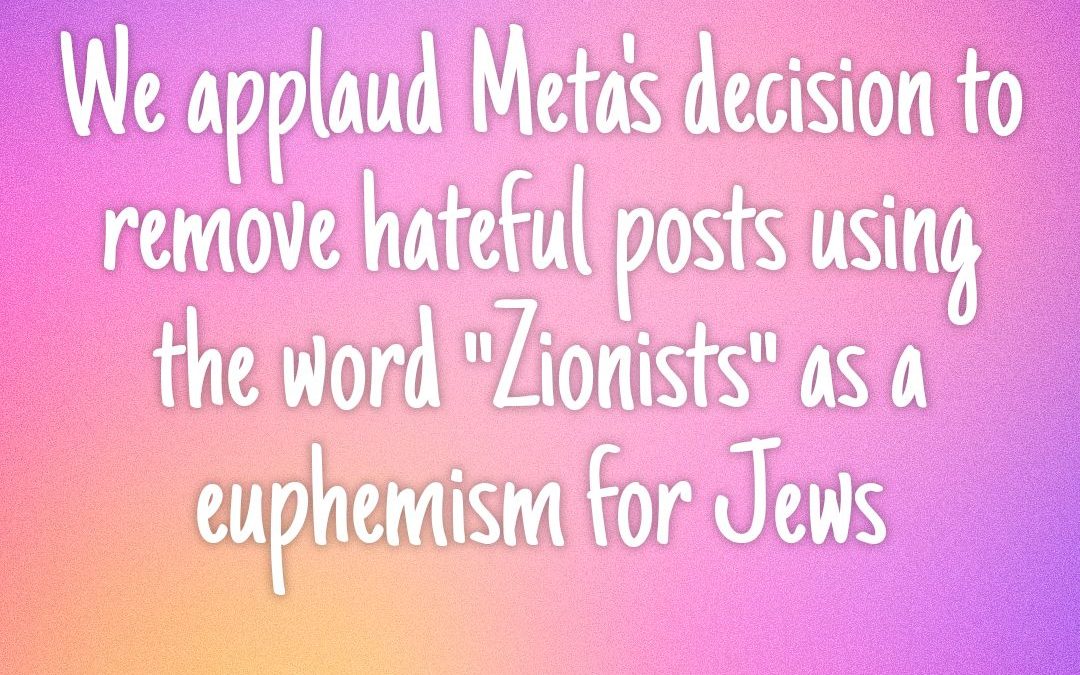In a significant move that signals a potential turning point in the fight against online antisemitism, Meta, the parent company of Facebook, has announced a new policy to combat the use of “Zionist” as a coded term for “Jew” in hateful content across its platforms. This decision comes as part of a broader effort to address the insidious “antisemitism loophole” that has allowed hate speech to flourish under the guise of political discourse on social media platforms like Facebook and Instagram.
The South African Zionist Federation (SAZF), along with 34 other Jewish and Zionist organizations from around the world, has applauded Meta’s decision as a crucial step towards ensuring the safety and well-being of Jewish users online. In a joint statement – which can be read here – these organizations emphasized that over 95% of the world’s Jews identify as Zionists, and the weaponization of this term to promote hate is a direct attack on the Jewish community.
Meta’s new policy is not merely a symbolic gesture. It reflects a growing recognition among tech companies that they have a responsibility to combat hate speech and protect marginalized communities. By explicitly identifying the use of “Zionist” as a euphemism for “Jew” in hateful contexts, Meta is sending a clear message that antisemitism will not be tolerated on its platforms.
This move is particularly significant given the rising tide of antisemitism in recent years. In 2022, the Anti-Defamation League (ADL) reported a staggering 36% increase in antisemitic incidents in the United States compared to 2021, marking the highest number on record since the organization began tracking such incidents in 1979. Online platforms have become breeding grounds for hate speech, and the use of coded language has made it increasingly difficult to identify and address antisemitic content.
Meta’s decision has been met with widespread support from Jewish organizations and individuals who have long advocated for greater action from social media companies to combat online hate. However, some critics have raised concerns about the potential for censorship and the difficulty of distinguishing between legitimate criticism of Israel and antisemitic hate speech.
Despite these concerns, Meta’s move represents a significant step forward in the fight against online antisemitism. The South African Zionist Federation and its partners agree that this move sets a precedent for other social media platforms to follow suit and adopt similar policies to protect Jewish users. While the battle against online hate is far from over, Meta’s decision is a powerful reminder that technology companies have a crucial role to play in creating a safer and more inclusive digital space for all.


